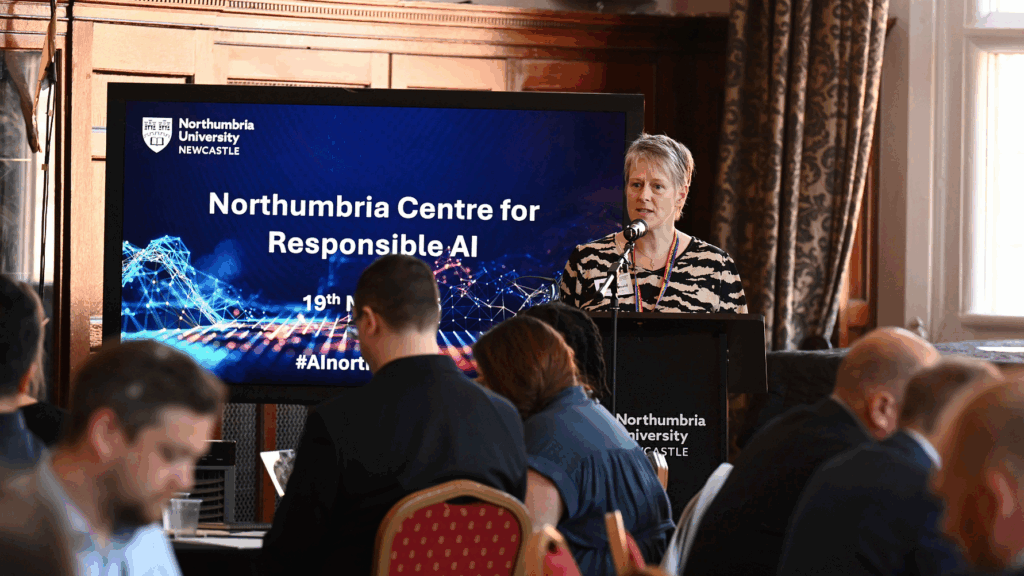Northumbria University has launched its pioneering center for excellence in responsible artificial intelligence (AI) research and expertise. Responsible AI Northumbria Centre is set up to be a “good” and trustworthy voice in the region for knowledge and advice on key aspects of AI deployment.
The Centre brings together leading academics, policy makers, government and industry experts to promote AI education, research and policy solutions with the aim of not leaving anyone behind in a rapidly evolving digital environment.
Building on Northumbria’s existing strengths in responsible AI, the center’s focus areas include citizen-centered AI, law enforcement AI, public sector governance, and digital education. It also covers new areas of research in the environmental impact of AI, the educational use of AI, and the impact of AI on the creative sector.
Highlighting the importance of responsible AI, Professor Marion Oswald MBE, Law Professor at Northumbria and academic lead at the Center, said:
“Our team already has considerable expertise in working with public sector organisations, including police, to help them understand the technical aspects of AI. We need to consider the factors that we consider in deciding whether to deploy AI. We are excited about the opportunity to expand university research on key issues regarding the environmental impact of AI, and the impact of AI on the education and creation sector.”
The Centre will also play a key role in positioning the Northeast as a leader in AI-enabled economic growth. With local mandate agreements that include commitment to responsible AI use, Northumbria’s expertise will help local stakeholders effectively navigate AI adoption.
Dr Kyle Montague, co-lead (research) at the center, added: “The UK Government’s AI Opportunity Action Plan highlights the need for collaboration between academia, industry and policymakers. Our centre will help ensure that the Northeast will become a key player in this national strategy and ensure that businesses, public services and individuals have the knowledge and skills to maximise benefits.”
Beyond research, the center leads AI education and training, ensuring that students, experts and policy makers develop AI literacy. The university’s commitment to incorporating responsible AI into education provides future generations with tools to navigate the AI-driven world.
Professor Graham Wynn, Northumbria’s professional vice-president (education) said: “In Northumbria, we believe that AI should be developed and applied in an ethical, inclusive, and people and community-focused manner.
The Center’s launch event, held on Monday, May 19, provided participants the opportunity to hear from Northumbria experts and Newcastle Central and West councillors, Chi Onwra, Northeast school director, Northeast economics director, Northeast innovation director, and Newcastle City Council’s Karen Kilgole’s innovation director.
Speaking at the event, Newcastle City Council leader Cllr Karen Kilgour said: The forefront of discussion reflecting Newcastle’s iconic symbolism as a unified, advanced and inclusive city. ”
In the first year, the centre will establish key stakeholder partnerships and develop training and policy guidance for public sector and industry professionals.
Scholars from the Center have already worked on a series of important projects focused on ensuring that AI is applied in ethical, inclusive and socially beneficial ways.
Possible Futures – Responsible AI UK (RAI UK) Keystone Project, examining the probability AI system of law enforcement agencies funded by Responsible AI UK.
With its interdisciplinary expertise and strong regional and national partnerships, Northumbria will lead the way in which it shapes AI technologies that are fair, transparent and beneficial to all.
Northumbria University has a global reputation for research and education in AI. In 2023, the university was awarded £9 million for UK research and innovation and established a doctoral training centre in the field of AI. Known as Citizen-Centered AI (CCAI), it focuses on including citizens in the design and evaluation of AI.



